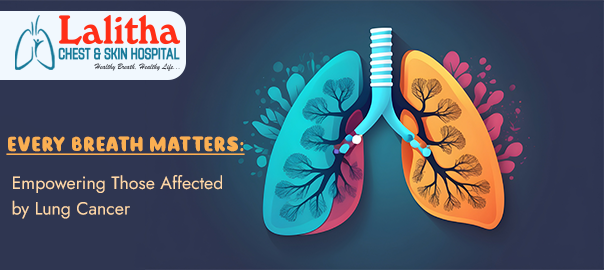Psoriasis is a chronic skin disorder that speeds up the growth cycle of skin cells. This results in patches of thick, red skin covered with silvery scales, which can be itchy and painful. It commonly affects areas like elbows, knees, scalp, and lower back, but can appear on any part of the body. Psoriasis is not contagious but can have a significant impact on daily life.
Dr. B. Jyothi, a famous skin specialist in Karimnagar, emphasizes that psoriasis significantly impacts quality of life, leading to physical discomfort, emotional distress, and social isolation. It is also associated with other health conditions such as psoriatic arthritis, cardiovascular diseases, obesity, and depression.
In this blog, with insights from Dr. B. Jyothi, a respected lady dermatologist, we aim to delve deeply into the causes and symptoms of psoriasis, providing a comprehensive understanding of available treatment options.
What causes psoriasis?
Psoriasis is caused by a combination of genetic, immune system, and environmental factors. The immune system mistakenly attacks healthy skin cells, triggering rapid skin cell growth. Genetic factors play a role, as psoriasis often runs in families.
Environmental triggers such as stress, infections, and injuries to the skin, certain medications, smoking, and heavy alcohol consumption can also exacerbate psoriasis symptoms. Psoriasis is a multifactorial condition influenced by various factors, including:
- Genetic Factors:A family history of psoriasis increases the likelihood of developing the condition. Certain genetic mutations are associated with psoriasis susceptibility.
- Immune System Dysfunction:Psoriasis is an autoimmune condition where the immune system targets healthy skin cells, leading to inflammation and rapid turnover of skin cells.
- Environmental Triggers:Various environmental factors can exacerbate psoriasis symptoms or trigger flare-ups. These include stress, skin injuries (such as cuts, scrapes, or sunburns), infections (like streptococcal infections), and certain medications (such as lithium, beta-blockers, and antimalarial drugs).
- Lifestyle Factors:Unhealthy lifestyle choices like smoking, excessive alcohol consumption, obesity, and poor diet can worsen psoriasis symptoms.
- Psychological Factors:Stress, anxiety, and depression can exacerbate psoriasis symptoms or trigger flare-ups in some individuals.
- Hormonal Changes:Psoriasis symptoms can be influenced by hormonal fluctuations, including those experienced during puberty, pregnancy, or menopause.
- Weather Conditions: Cold, dry weather tends to worsen psoriasis symptoms for many people, while warm, humid conditions may improve symptoms.
- Other Health Conditions:Certain medical conditions, such as metabolic syndrome, cardiovascular diseases, and autoimmune diseases like rheumatoid arthritis, may be associated with psoriasis.
So, what are the symptoms of psoriasis?
Psoriasis symptoms can vary depending on the type of psoriasis and its severity, but common symptoms include:
- Red, inflamed patches of skin covered with silvery scales (plaques)
- Dry, cracked skin that may bleed
- Itching, burning, or soreness
- Thickened or ridged nails
- Swollen and stiff joints (psoriatic arthritis)
- Small scaling spots (guttate psoriasis)
- Smooth, red patches in skin folds (inverse psoriasis)
- Pus-filled blisters (pustular psoriasis)
- Widespread redness and shedding of the skin (erythrodermic psoriasis)
- Psoriasis symptoms can occur anywhere on the body, including the scalp, elbows, knees, lower back, and nails. They may come and go in cycles of flare-ups and remissions.
Psoriasis treatments?
Psoriasis treatments aim to reduce inflammation, slow down skin cell growth, and alleviate symptoms. Here are common treatment options:
Topical Treatments: Applied directly to the skin, topical treatments include:
- Corticosteroids: Reduce inflammation and itching.
- Vitamin D analogs: Slow down skin cell growth.
- Retinoids: Help reduce inflammation and skin cell growth.
- Calcineurin inhibitors: Suppress the immune system’s response.
- Salicylic acid: Helps remove scales.
- Coal tar: Reduces inflammation and scaling.
Phototherapy (Light Therapy): Treatment includes exposing the skin to ultraviolet light under medical supervision. Varieties consist of:
UVB phototherapy: Slows down skin cell turnover and minimizes inflammation.
PUVA (psoralen plus UVA) therapy: Utilizes a light-sensitizing medication (psoralen) combined with UVA exposure.
Moisturizers: Regular application of moisturizers can help soothe dry, irritated skin and reduce scaling. Look for moisturizers that are fragrance-free and hypoallergenic.
Steroid Injections: In severe cases or when psoriasis affects specific areas like the scalp, hands, or feet, steroid injections directly into the affected skin can provide relief.
Laser Therapy: Excimer laser therapy targets affected skin with a concentrated beam of UVB light, helping to reduce inflammation and promote healing.
By combining various treatments and adopting lifestyle changes, people with psoriasis can effectively manage symptoms and enhance their quality of life. It’s crucial to collaborate closely with a healthcare provider to create a personalized treatment plan.
To get detailed information and potential treatment approaches, it’s advisable to schedule an appointment with a specialized dermatologist. If you’re still looking on Google with “female dermatologist near me” or a “psoriasis hospital near me” on Google, your search ends here.
Lalitha Chest and Skin Hospital houses Karimnagar’s top psoriasis doctor, Dr. B. Jyothi and provides advanced treatments for all types of psoriasis. For inquiries, visit us at https://lalithachestandskinhospital.com/



